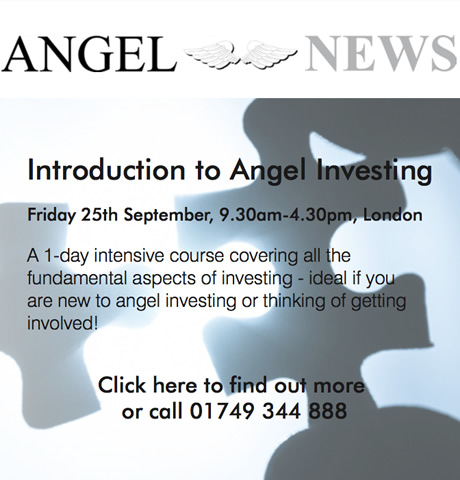Lunching with a wise lawyer the other day, the topic of apparently obscene valuations came up. His favourite story of the moment is a £5m round which is just closing for a near start up on a £50m pre money valuation. What sector you might ask? Internet, FinTech, EduTech? No! It’s in a sector which (to spare the blushes of those concerned) is in what I choose to call mobile food retail.
Then there’s all those toppy valuations going through the crowd funding market – you will know the ones I mean – the fact the many of them are in alcoholic drinks does make me wonder whether the investors have been sampling too much of the product before signing the documents.
Meanwhile cynical experienced angels tut away about how “damaging this is to the companies” – how on earth will they be able to do an up round when the start-up valuation is higher than the typical “good trade sale price” for a UK exit is in the region of £20m and is frequently much lower. They have a point, but this is still worthy of further discussion.
There are some very sensible basic rules of valuation. Companies with profits can be valued on PERs and EBITDA multiples using nice sensible quoted comparables and precedent trade sale transactions. My personal favourite rule is letting the new money take between 25% and 35% of a round and then working backwards from there based on the cash needs of the company until is it reliably cash flow positive. Some people like to use a very simple valuation methodology, for example, £100k of value for great management, £100k for a great defensible product, £100k for an enormous market opportunity and so on. I recollect that Jude Cook the founder of ShareIn, the crowdfunding company, liked the pre-money valuation model based on amount of time and effort put into the business to date.
Nirvana would be to know what the exit price will be for the company and work backwards from there, but outside the comment above of a £20m exit being very respectable, we are inevitably in the Night Garden if we try to value on this basis!
Why are we in a bubble if you agree that this is the case? Well, it’s pretty simple really. Angel investing has become fashionable, the rise of crowdfunding is driving tens of thousands more people to look at private company investing and inevitably some of these will turn towards angel investing as philosophically and strategically better for them personally as an investment class. The fact that an unprecedented £1.4bn was invested under EIS (almost treble that invested in 2010/11) and £155m under SEIS (up £60m year on year) gives us one clue; The Sunday Times Rich List another. Quite simply there is an awful lot of money chasing deals, and some of the people holding that money think of £1m as a birthday present for a beloved daughter to “spend on something pretty”.
At the other end of the financial scale, crowdfunding is now a cool middle class activity. Private company investing is no longer the preserve of the elite of cashed out entrepreneurs and a few others.
Rightly or wrongly, these new classes of investors are not hidebound by the “rules” of the traditionalists and they may be investing for reasons beyond simple investment returns.
The news that BrewDog is setting out to raise £25m without even using the formal angel or crowdfunding industries, but is confident that is can use its own website (approved by the way by the UK Listing Authority!) means that fundraising is being completely taken out of the hands of the advisory community who have precedent to guide them. (By the way, once again it’s the Scots showing us the way on this one.)
Is it dangerous to assume that we are in a Gold Rush? What if you look at these valuations from a different angle? Do they mean that entrepreneurs psychologically feel very much in control of their companies still and will their Selfish Gene drive them harder than the whip hand of many angels or VCs? Will the people who buy a couple of shares in BrewDog for £95 really care whether that turns into £950 if they are actually buying ownership in a brand they love and it means discounts on their pints in the pub? Ironically will their enthusiasm for drinking the product actually help the company to grow revenues quicker and therefore command a premium valuation? Have we the Brits finally understood that if a company is going to aim not for a £20m exit in 3, 5 or 7 or even 10 years, but for a £2bn or £20bn or £120bn exit, we are going a. to have to keep the founders with large stakes along the way and b. stuff loads and loads and loads of money into these companies.
My sensible head tells me we are in a bubble and the world has gone mad, but my angel head, the one I wear when I want excitement, to take a risk, to back world dominating businesses, tells me that I should always listen to those who challenge me and sometimes it might be worth joining them in a new adventure.
Do send me your own stories of crazy valuations and what happened next and, if you give us permission, we will publish them next month so the debate can continue – [email protected]
Add a comment:
Call us on 01749 344 888
or click here to contact us







